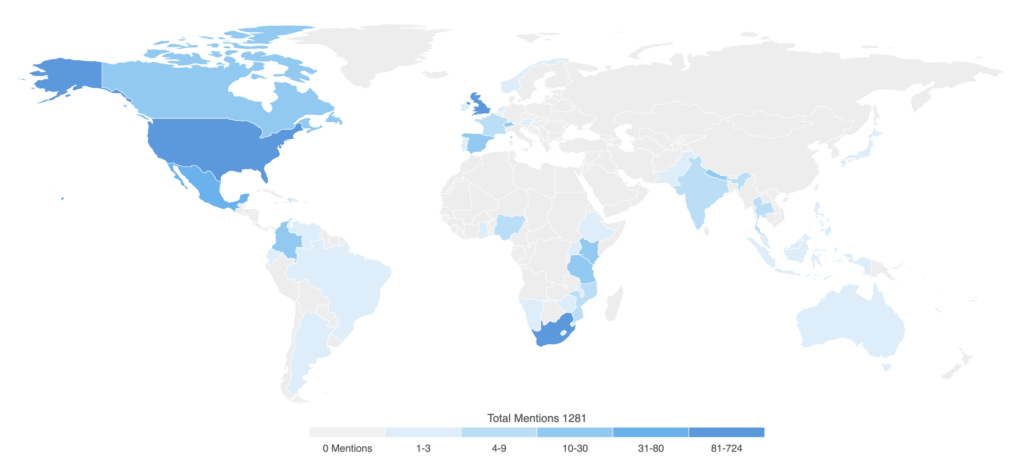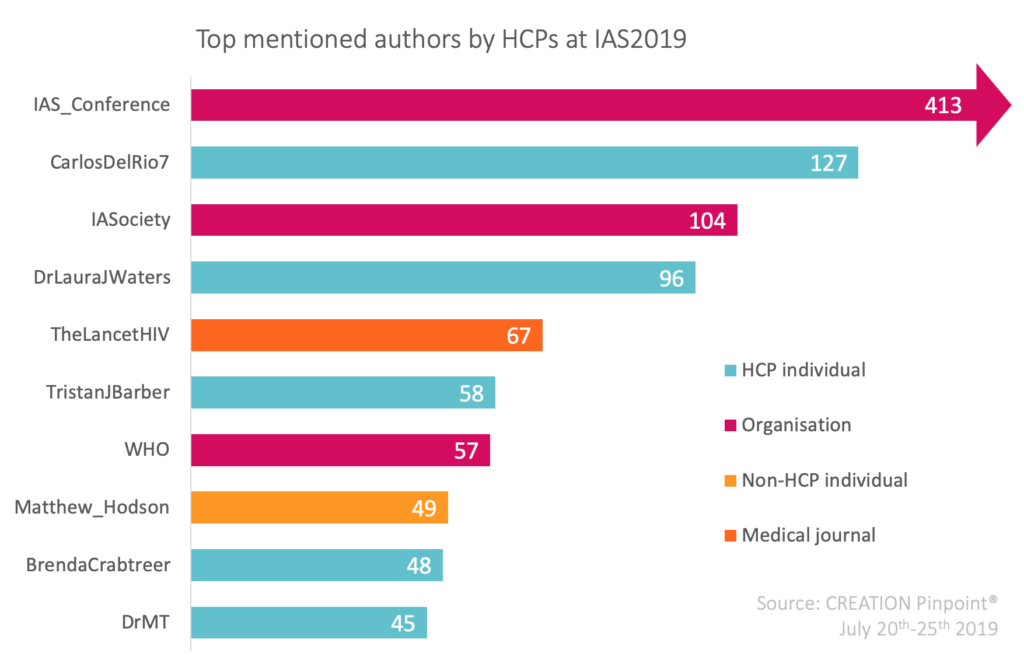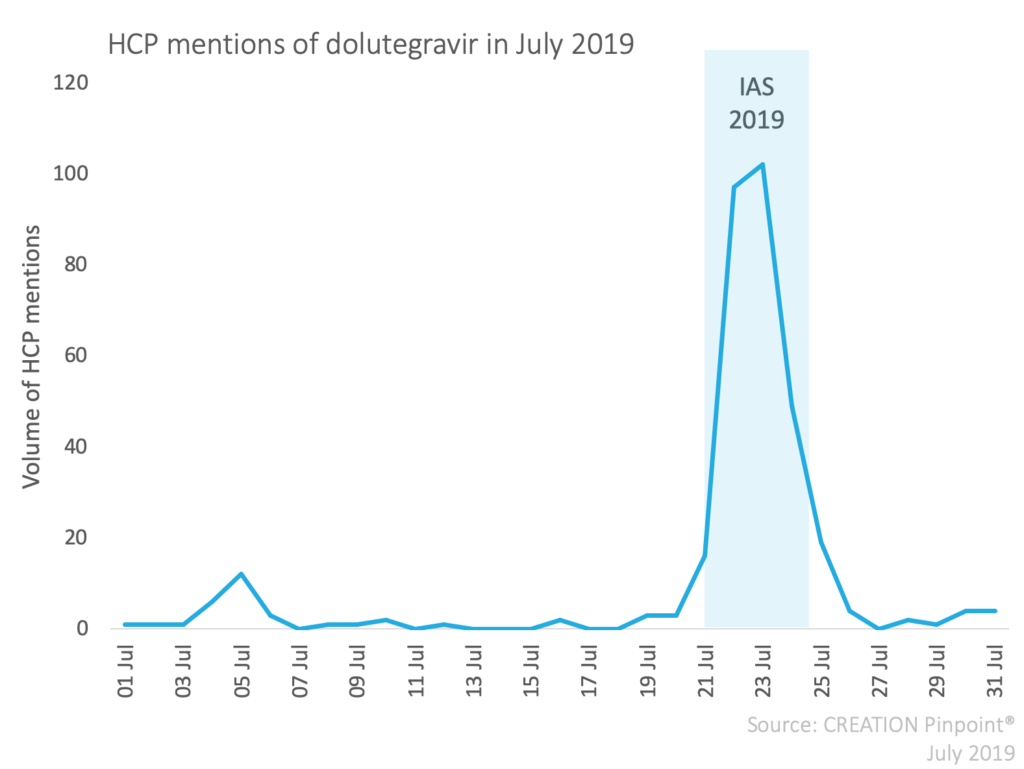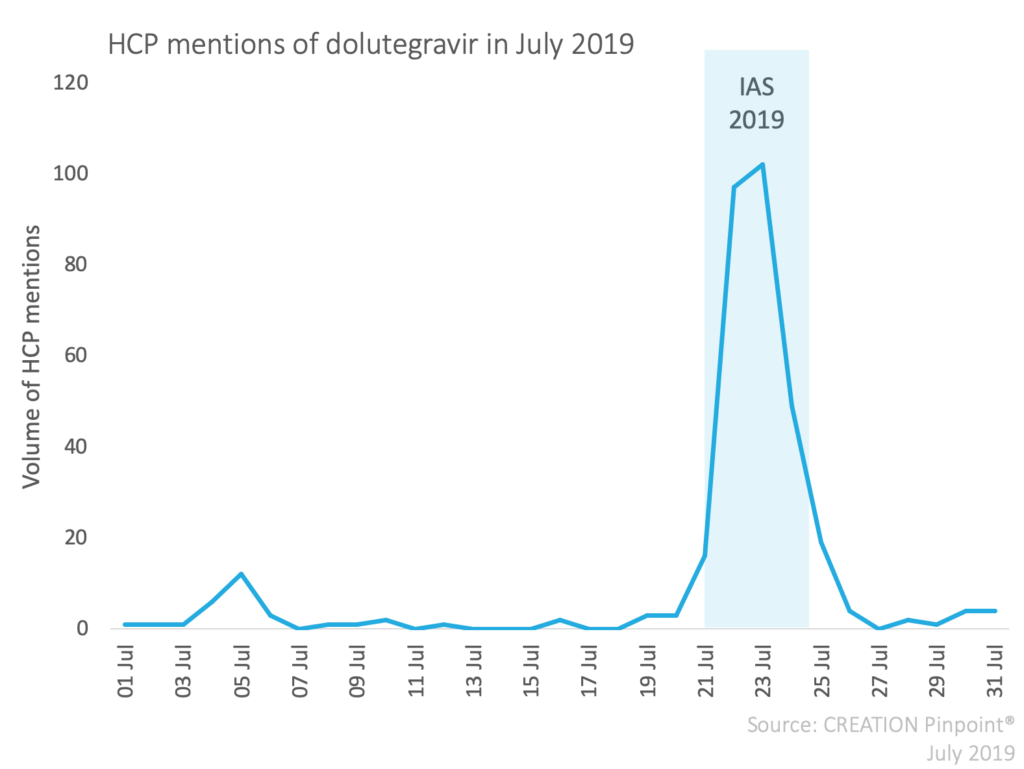Last month, physicians from across the globe gathered in Mexico City for the 10th International AIDS Society Conference on HIV Science: IAS2019. The IAS conference happens biennially and presents the critical advances in HIV research to put science into practice. The society pledged to strengthen political commitment with the goal of increasing resourcing and financial support of HIV research to face the barriers that block medical progression and outcomes.
Healthcare professionals (HCPs) flock to social media during congress meetings, whether they are in attendance or not, to stay up to date with new research and share news with their online networks. CREATION Pinpoint® analysed the online conversations from HCPs during IAS conference and found that over a period of 6 days, 392 unique HCPs posted 1,281 tweets about the event.
Whilst the conference was in Mexico City, allowing Latin American countries to take a focus, HCP interest spread across the globe, with the majority of HCP conversation about the event coming from the United States (724 mentions), United Kingdom (239 mentions) and South Africa (81 mentions).

The conference covered HIV research, focusing on detection, prevention and vaccines and treatment, as well as more general awareness efforts. This wide scope initiated interest from a vast array of HCPs, from general practitioners and nurses to HIV and infectious disease specialists.
When considering online influence at congress, a very revealing metric is those Twitter accounts that are being mentioned and retweeted by HCPs. CREATION often finds that these will contain a mix of HCPs and medical organisations, and this was indeed the case at IAS.

Carlos del Rio was the single most mentioned author by other HCPs; 127 times over the 6 day study period. As Professor of Medicine at the Division of Infectious Diseases, Emory University School of Medicine and Director of the Emory AIDS International Training and Research Program in Atlanta, GA, Prof. del Rio was very active in the study period tweeting 140 times, sharing images from presentations and responding to data being shared.
These behaviours were reflected among other authors who shared significant trials with their own thoughts on the data. The most mentioned studies by HCPs were ADVANCE and NAMSAL, which investigated drug combinations (TAF/FTC/DTG and TDF/FTC/DTG versus TDF/FTC/EFV) and their effect on weight gain. One of these, DTG, or dolutegravir, is the drug that received the most coverage by HCPs online over the conference, 286 mentions.

Two sources in particular caused this significant spike in mentions for dolutegravir. The World Health Organisation (WHO) on July 22nd recommended DTG as HIV treatment for all. There were 98 mentions of WHO with HCPs not only reposting directly from their account but sharing their opinions of this news.
The same day, the New England Journal of Medicine shared the data release from a DTG trial with positive results.
HCPs quickly responded to this report, sharing their take on the DTG recommendation, discussing how it may affect their patients or considerations that should be made.
The online behaviours of HCPs at IAS2019 displays the interest to pursue better outcomes for HIV patients and overall reduce the disease occurrence. At congress meetings such as this, HCPs celebrate successes but also call out gaps in data or understanding, proving the unmet needs they have which can only be addressed by further study and education.
Studying the online conversation of HCPs during congress provides health stakeholders, manufacturers and researchers with powerful insights into the future uptake of innovations and treatments. To discover how CREATION can help you make the most of congress events, sign up for our congress insights updates, or get in touch.
 By Mary Kangley
By Mary Kangley 



